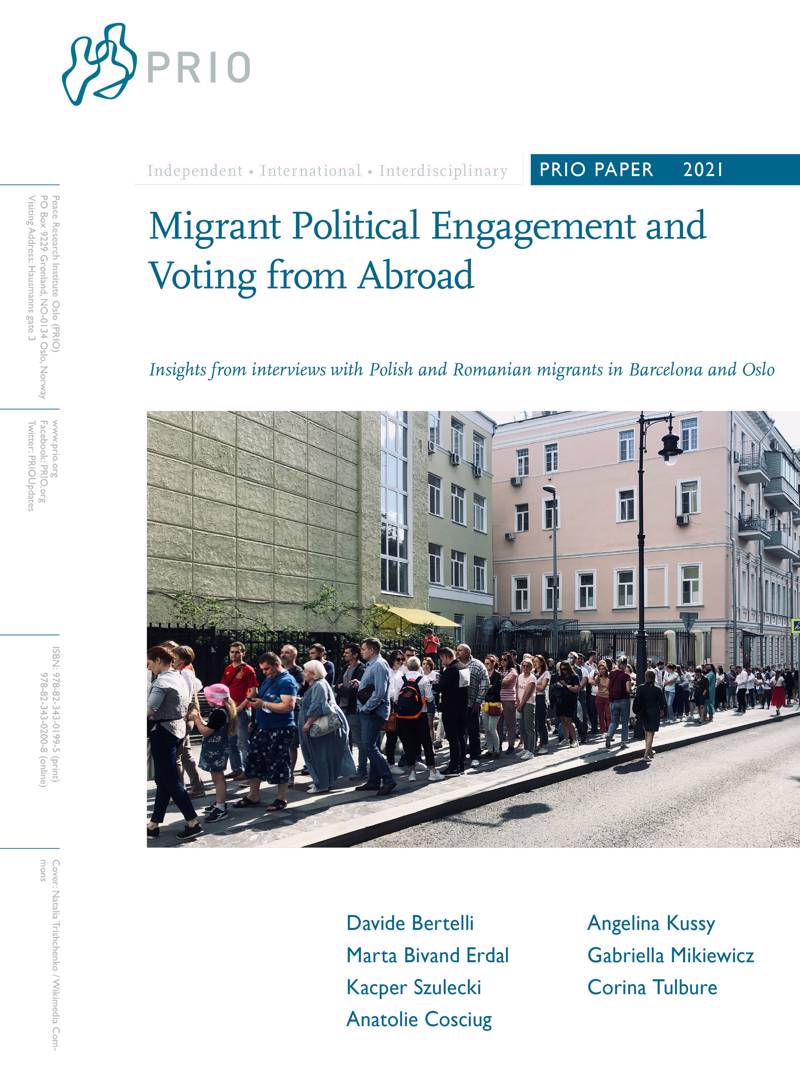
Why do migrants vote? How do they compare countries of origin and residence? This new PRIO paper summarizes findings from 80 semi-structured interviews and offers insights from Polish and Romanian migrants living in Barcelona and Oslo. These interviews were conducted as part of the DIASPOlitic project “Understanding the Political Dynamics of Émigré Communities in an Era of European Democratic Backsliding”. The project is funded by the Research Council of Norway and led by the University of Oslo, in collaboration with SWPS University in Warsaw and the Peace Research Institute Oslo (PRIO).
In this report, we present insights from interviews with Polish and Romanian migrants living in Barcelona and Oslo. These interviews were conducted as part of the DIASPOlitic project “Understanding the Political Dynamics of Émigré Communities in an Era of European Democratic Backsliding”. The project is funded by the Research Council of Norway and led by the University of Oslo, in collaboration with SWPS University in Warsaw and the Peace Research Institute Oslo (PRIO).
Our analytical focus is the political engagement of EU migrant groups in their countries of origin – pondering the confluence of, on the one hand, mass emigration from countries in Central and Eastern Europe, and, on the other hand, the ongoing processes of democratic backsliding. Whereas this can be approached at the macro level, in this report, we turn to the micro level, exploring a core puzzle in the study of international migration: namely, how and when does migration impact individuals in ways such that their ideals, values and outlooks change?





